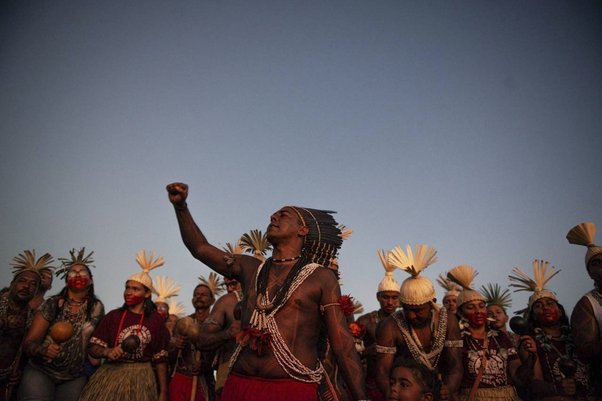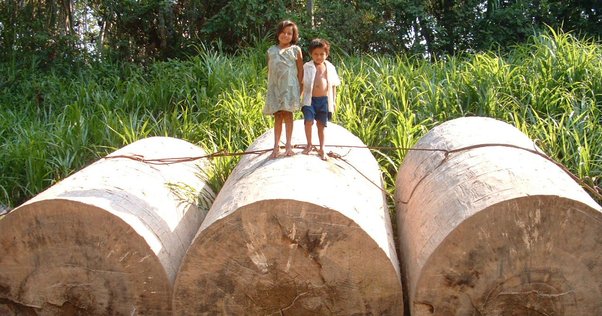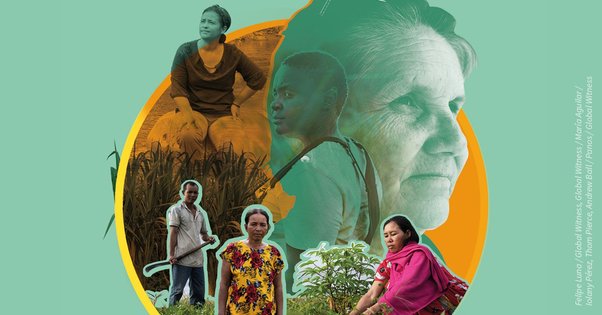Major international brands are called on to stop purchasing palm oil linked to human rights abuses
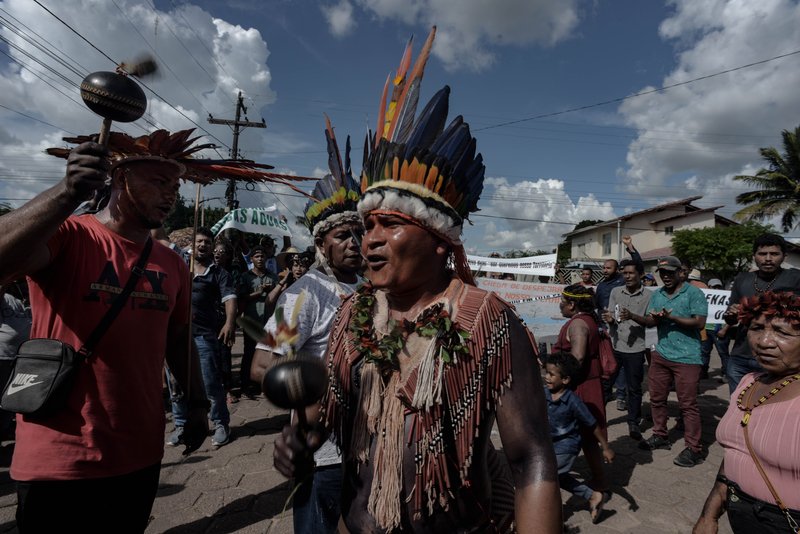
In September 2022, we published the investigative report Amazon Palm revealing that major international household brands including Hershey’s, Kellogg, Nestle and PepsiCo and commodity traders such as Cargill source palm oil from Pará, Brazil, despite their suppliers’ links to violence, torture and land fraud. The report highlights the need for immediate action from international companies sourcing palm oil from Brasil Biofuels (BBF) and Agropalma, as well as from policy makers in the EU, to stop severe human rights and land rights abuses against Indigenous, Quilombola and other communities who traditionally live in the oil palm plantation areas.
Community leaders feared for the security of land and environmental defenders throughout the end of Bolsonaro’s term. According to them, the pre-election message from ‘deputies and government officials’ to local palm oil producers was clear: “if Bolsonaro loses, execute those who are protesting and creating problems until the end of 2022.” Since Jair Bolsonaro’s electoral defeat in October 2022, those concerns appear to be coming true.
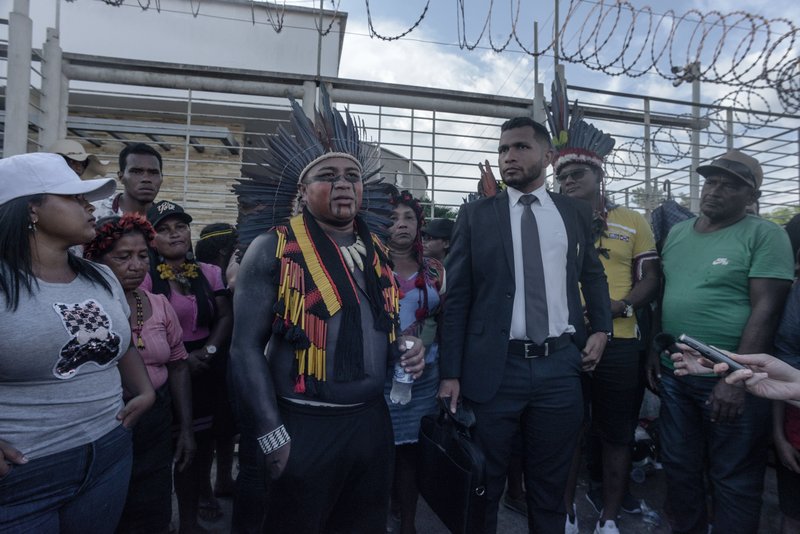
We have received new evidence of serious allegations made by Turiuara and Tembé Indigenous leaders from Tomé-Açu/Acará in Pará concerning violent actions taken by men wearing BBF’s uniform and armed men alleged to be acting on behalf of BBF to reoccupy Indigenous lands that are also claimed by the company[1].
BBF initiated the repossession of these lands following a court decision in favour of the company from 15 September 2022. On 28 November, BBF security guards allegedly attempted to violently enforce the decision without the presence of the military police and other government officials and/or court agents, a legal requirement resulting from the judge’s order.
After an urgent request made the following day by the Pará State’s Public Prosecutor’s Office (MPPA) and the Tembé Indigenous People’s Association (Associação Indígena Tembé do Vale do Acará), the Court issued an interim decision prohibiting the land repossession.
We have gathered video and interview evidence showing that, on and after 28 November, armed men reportedly acting on behalf of BBF have:
- Forced men and women to lay face down on the floor at gunpoint, ‘as if they were criminals;
- Attacked and hurt community members, allegedly including a pregnant woman;
- Threatened to shoot those who were attempting to protect the territory and prevent BBF’s reoccupation.
Indigenous leaders also allege that they have received death threats.
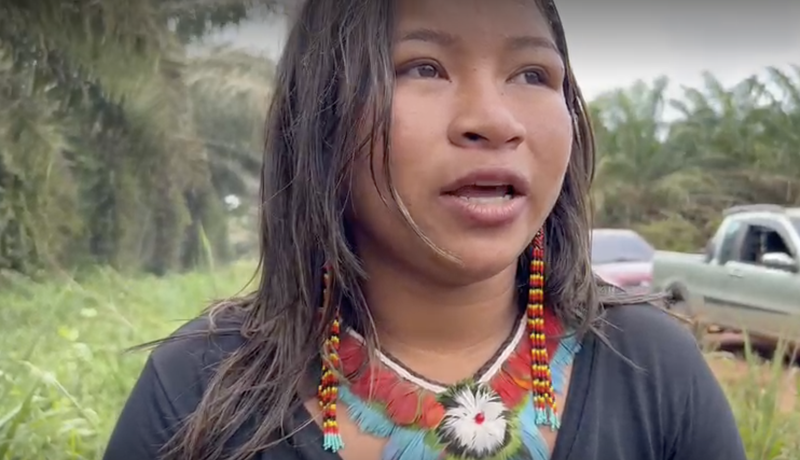
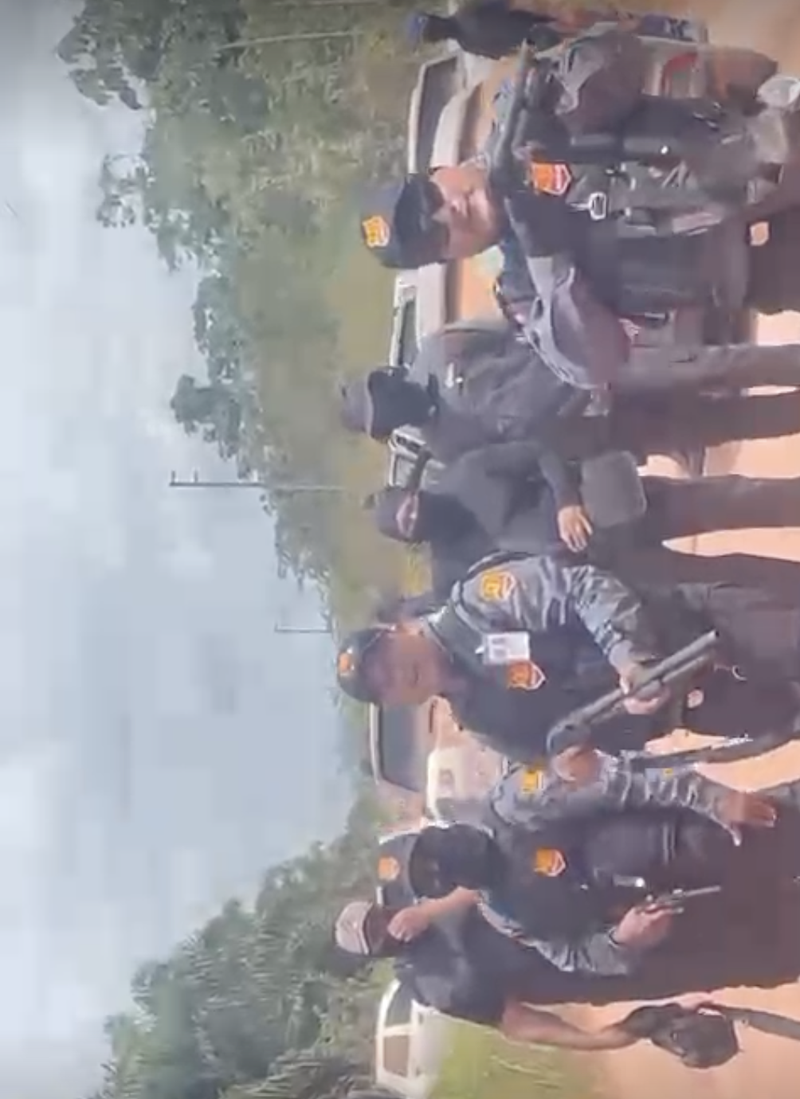
Two months ago, days before the elections in Brazil, an indigenous person was shot and killed, and three others injured in the Tomé-Açu/Acará region. The crime is still being investigated by Brazil’s Federal Prosecutor’s Office (MPF)[2].
After being contacted by us, BBF responded that they understand that what happened on 28 November 2022 was ‘a series of simultaneous invasions of land owned by BBF’, carried out by a group of Indigenous and Quilombola individuals. The company denied that its security guards acted with violence and stated that the role of their private security team was to guarantee the physical integrity of the workers and the preservation of company's property. They reinforced their commitment to maintain a constructive and open dialogue with the communities that live in the areas where the company operates.
In September, we informed major international brands that have purchased from the palm oil producer about violence in the region, including Cargill, Hershey, General Mills, Kellogg, Mondelez, Nestlé, PepsiCo and Unilever. At the time, none committed to halting purchases.
These international companies were failing in their responsibilities under international best practice and guidance[3].
Most of these international companies we contacted[4] informed us that they were working on action plans with BBF to address the situation[5].
Following recent violence, we again asked the companies if they would stop buying.
Cargill informed us that they have suspended BBF from its palm supply chain, as they are unable to ensure BBF is upholding its obligations as a Cargill supplier. Hershey, General Mills and Kellogg have responded to us stating that they were linked to BBF through their direct supplier – Cargill, who has suspended BBF effective on October 13, 2022. Therefore, BBF is no longer in these companies’ supply chains.
Unilever has said they are investigating BBF through their grievance mechanism and by reaching out to their direct supplier – Cargill. Nestle said they do not purchase from BBF.
We welcome the responses of these companies who are no longer purchasing palm oil from BBF.
Mondelez and PepsiCo have not responded to our request for comment.
According to Edvaldo Santos de Souza, a Turiuara Indigenous leader, ‘it is really important that all companies follow Cargill’s example and stop buying from BBF. BBF will only stop violating our rights if they understand that the market is not going to be conniving to violence against traditional communities. We understand this as a big win for us and hope other buyers in Brazil and abroad will do the same’.
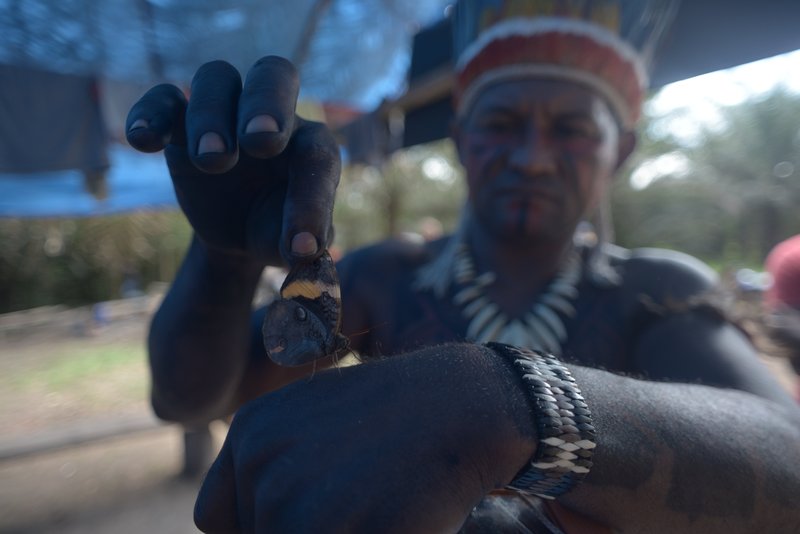
Jorde Tembé, Tembé Indigenous lawyer, understands that ‘companies who want to source palm oil in a socially responsible manner, cannot continue purchasing from producers, such as BBF, who continuously violate the human rights of Indigenous and Quilombola communities.’.
Considering the apparent escalation of the conflicts and the imminent risk of further violations, we call on all companies purchasing palm oil from BBF to immediately terminate – and not only suspend – contracts with BBF considering that they reportedly continue waging a campaign of intimidation and violence; and to take all necessary action to remedy the harms suffered by the communities. We also call on the EU to expeditiously strengthen, adopt and implement legislation mandating corporate human rights and environmental due diligence as a priority in order prevent such human rights abuses and harms in corporate supply and value chains.
Brazil: The communities living in conflict with palm oil producers
Footnotes
[1] This land is the object of a land repossession process filed by BBF against the Tembé Indigenous community. Proceedings n. 0801607-33.2021.8.14.0060, filed on 18 December 2022, Pará State Court (TJPA).
[2] On 24 September 2022, the MPF released an official announcement saying they are initiating investigations about the deaths. As of the date of publication, no other announcement has been made.
[3] These violations contravene numerous Articles of the Universal Declaration of Human Rights, including Article 3 (the right to life, liberty and security of person); Article 5 (freedom from cruel, inhuman or degrading treatment or punishment); and Article 17 (the right to own property). Multinational companies purchasing palm oil coming from plots overlapping community lands where these human rights abuses are alleged are directly linked to those abuses, and as such are failing in their responsibilities under the UN Guiding Principles on Business and Human Rights (UNGPs), and those as further defined in the OECD Guidelines for Multinational Enterprises (OECD Guidelines) and OECD Due Diligence Guidance for Responsible Business Conduct (OECD Guidance). Worse, these companies may not merely be ‘directly linked’ to these human rights impacts but can be regarded as meeting the criteria of ‘contributing to’ the abuses, a form of involvement that, according to the UNGPs, infers a further responsibility on companies to “provide for or cooperate in their remediation”, with the OECD Guidelines and Guidance similarly mandating active remediation.
[4] Mondelez did not respond to our requests for comment. PepsiCo stated they do not have a formal comment on the allegations. The company is looking into the information by establishing whether it has sourcing links to BBF through its direct suppliers, and by engaging Agropalma on the allegations.
[5] See the essence of the companies’ responses in our Amazon Palm report.
